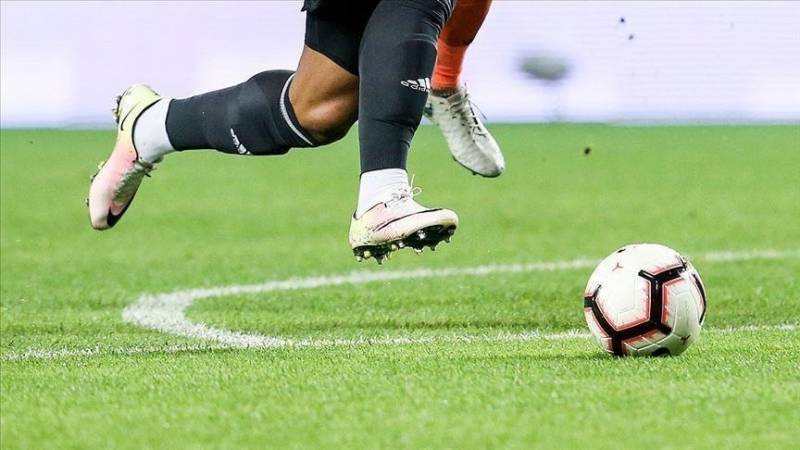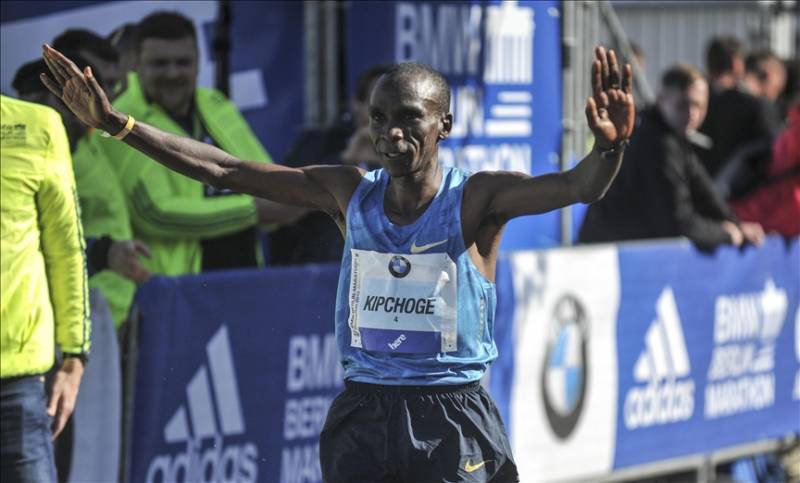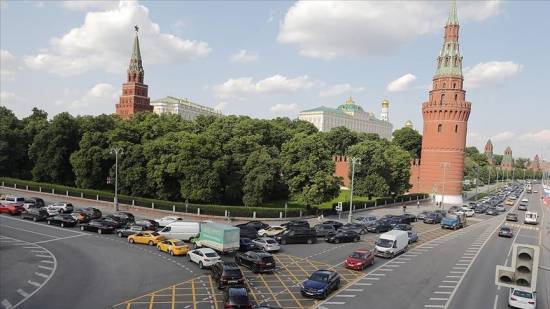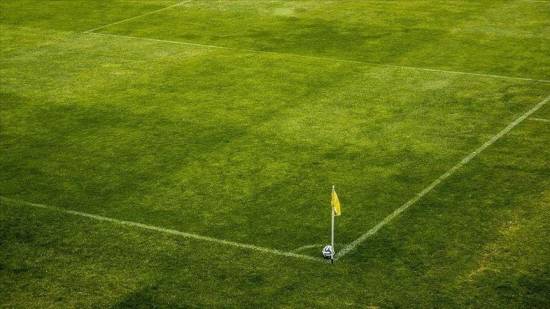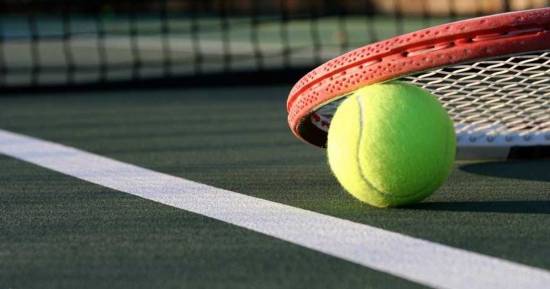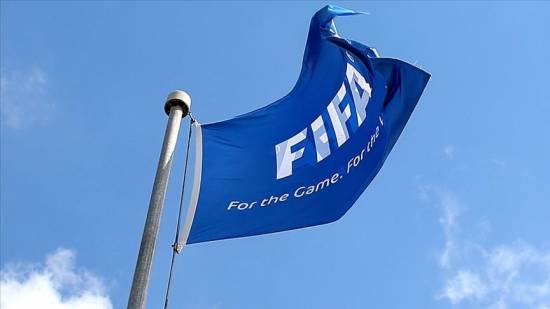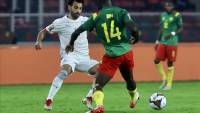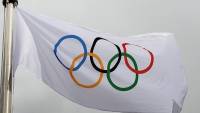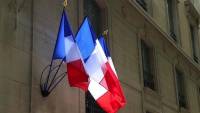FIFA on Monday said it was allowing foreign players and coaches at Russian clubs to "unilaterally suspend their employment contracts" until the end of the 2021-22 season to "facilitate" their departure from Russia.
The move further distances the world of international sports from Russia.
"In order to facilitate the departure of foreign players and coaches from Russia, in the event that clubs affiliated to the Football Union of Russia (FUR) do not reach a mutual agreement with their respective foreign players and coaches before or on 10 March 2022 and unless otherwise agreed in writing, the foreign players and coaches will have the right to unilaterally suspend their employment contracts with the FUR-affiliated clubs in question until the end of the season in Russia (30 June 2022)," world football’s governing body said in a statement.
For war-torn Ukraine, FIFA also adopted a temporary employment rule for foreign players and coaches in Ukrainian clubs until the end of this season "to protect" all parties.
"Concerning the situation in Ukraine, in order to provide players and coaches with the opportunity to work and receive a salary, and to protect Ukrainian clubs, unless the parties to the relevant contract explicitly agree otherwise, all employment contracts of foreign players and coaches with clubs affiliated to the Ukrainian Association of Football (UAF) will be deemed automatically suspended until the end of the season in Ukraine (30 June 2022), without the need for any action from the parties to this effect."
FIFA added that the players and coaches will be "considered out of contract” until June 30, 2022 so they can freely move anywhere to perform their works.
Separately, FIFA condemned the "ongoing use of force by Russia in Ukraine" and called for peace immediately.
In late February, Ukraine suspended its top-tier football league after the declaration of martial law due to Russia's war on Ukraine.
Last week foreign players of Ukrainian football clubs Shakhtar Donetsk and Dynamo Kyiv left Ukraine, fleeing the Russia-Ukraine war.
Since Russia began its war against Ukraine on Feb. 24, it has drawn international condemnation, led to financial sanctions on Moscow, and spurred an exodus of global firms from Russia.
At least 406 civilians have been killed and 801 others injured in Ukraine since the beginning of the war, according to UN figures.
More than 1.7 million people have also fled to neighboring countries, the UN Refugee Agency said./aa
Kenyan athlete Eliud Kipchoge won the 2022 Tokyo Marathon on Sunday.
He ran the marathon in 2 hours, 2 minutes, and 40 seconds, making him the fourth-fastest marathoner in history.
Another Kenyan, Amos Kipruto, finished second in 2:03:13, with Ethiopian Tamirat Tola coming in third in 2:04:14.
Separately, a three-time Olympian Stephen Mokoka from South Africa broke the 50-kilometer men's world record in a road race in Gqeberha with a time of 2:40:13, surpassing Ethiopia's Ketema Negasa./aa
As Russia begins to feel the toll of worldwide sanctions gripping almost every front, prompted by its ongoing war on Ukraine, Russian sport competitors and events are also facing a backlash.
After Moscow launched a war on its neighbor late last month, Russian teams and clubs have been barred from international tournaments.
The first steps were taken by the European football governing body, UEFA, to immediately show support for Ukraine on and off the pitch.
One day after Russia attacked Ukraine, UEFA moved this year’s signature UEFA Champions League final from St. Petersburg, Russia to Paris.
The sanctions were expanded when all Russian clubs and national teams were banned from participation in FIFA and UEFA competitions until further notice.
Spartak Moscow were disqualified from the 2021-22 UEFA Europa League after they made it to the Round of 16.
The Russian national football team is be ineligible to face Poland in the 2022 FIFA World Cup qualification playoffs on March 24.
UEFA canceled its longtime partnership with Russian gas company Gazprom, and Adidas ended its collaboration with the Russian Football Union (RFU).
The RFU appealed to the Court of Arbitration for Sport (CAS) against the decision, which suspended Russian teams from international competitions.
Separately, US-based video game producer EA Sports decided to remove all Russian clubs and its national team from its platforms, including FIFA and NHL, to show support for Ukraine.
Abramovich to sell Chelsea
Russian billionaire Roman Abramovich will sell English club Chelsea after Russia's war on Ukraine, the club confirmed.
Abramovich, 55, said he will sell Chelsea for the English club's "best interest at heart" amid media speculation about his ownership.
The Abramovich era at the Blues started in 2003 when he purchased Chelsea for a reported £140 million ($187 million).
Under his ownership, Chelsea became one of the top European clubs, winning several major titles including two UEFA Champions League, two UEFA Europa League, and five Premier League trophies.
Clubs cut ties with Russian sponsors
Football clubs from England and Germany canceled commercial ties with their Russian sponsors to protest the war.
England's Manchester United terminated their sponsorship deal with Russian airline Aeroflot.
Then Everton severed ties with USM, Megafon, and Yota.
Schalke 04 did the same as the German club ended their partnership with Gazprom after removing the Russian firm's logo from their shirts.
EuroLeague, FIBA suspend Russian basketball teams
Russian basketball clubs were barred from EuroLeague contests.
The EuroLeague Commercial Assets (ECA) suspended the "participation of Russian Federation teams" in the Turkish Airlines EuroLeague, which includes CSKA Moscow, UNICS Kazan, and Zenit St Petersburg, as well as the 7DAYS EuroCup, with Lokomotiv Kuban Krasnodar.
FIBA, which governs basketball around the globe, announced that Russian teams and officials will no longer be allowed in international competitions.
F1 cuts ties with Russian GP
This week Formula One canceled its contract with the Russian Grand Prix.
"Formula 1 can confirm it has terminated its contract with the Russian Grand Prix promoter. It means that Russia will no longer have a race in the future," organizers said in a statement.
On Feb. 25, the F1 removed the Russian Grand Prix from its 2022 calendar, citing the war in Ukraine.
The race was scheduled for Sept. 25 in the Black Sea resort city of Sochi.
The 2022 Formula 1 season – without the Sochi race – will start on March 20 in Bahrain.
Russian, Belarusian athletes barred from Winter Paralympics
Russian and Belarusian Paralympic athletes also cannot compete in the Beijing 2022 Paralympic Winter Games.
To "preserve the integrity of these Games and the safety of all participants, we have decided to refuse the athlete entries from RPC (Russian Paralympic Committee) and NPC (National Paralympic Committee) Belarus," said International Paralympic Committee President Andrew Parsons.
The 2022 Winter Paralympics began on Friday, March 4 and lasts through March 13.
Russia's war on Ukraine, which began on Feb. 24, has been met with international outrage, with the European Union, US, and Britain, among others, implementing tough financial sanctions on Moscow.
More than 1.2 million people have fled Ukraine to neighboring countries, according to the UN Refugee Agency./aa
Top regulatory authorities governing global and European football have suspended Russian clubs and national teams from international games amid the Russia-Ukraine war.
"All Russian clubs and national teams are suspended from participation in both FIFA and UEFA competitions until further notice," the Union of European Football Associations (UEFA) said in a statement on Monday.
It said that the International Federation of Association Football (FIFA) and UEFA took a joint decision as they suspended all Russian teams' participation in international football competitions until further notice.
"Football is fully united here and in full solidarity with all the people affected in Ukraine," UEFA added.
Moscow’s war on Ukraine entered its fifth day on Monday, with the latest reports indicating that Russian troops were heading toward the capital, Kyiv.
The war has been met by outrage from the international community, with the EU, UK, Japan, and US implementing a range of economic sanctions on Russia.
At least 102 civilians have so far been killed in Ukraine and more than 500,000 others have fled the country, according to UN officials.
Ukraine says more than 350 civilians have been killed and over 1,600 injured during attacks by Russian forces./aa
Ukrainian tennis star Elina Svitolina has refused to face Russia’s Anastasia Potapova at the Monterrey Open in Mexico in the wake of Moscow’s war on Ukraine.
"I believe the current situation requires a clear position from our organizations: ATP, WTA and ITF. As such, we – Ukrainian players – requested to ATP, WTA and ITF to follow the recommendations of the IOC to accept Russian or Belarussian nationals only as neutral athletes, without displaying any national symbols, colours, flags or anthems," she said in a statement on Monday.
World number 15 Svitolina said she will not play against any Russian or Belarussian tennis players until the organizations take necessary steps, adding that she does not blame any of the Russian athletes for the current crisis.
"They are not responsible for the invasion of our motherland. Moreover, I wish to pay tribute to all the players, especially Russians and Belarussians, who bravely stated their position against the war. Their support is essential," the 27-year-old said.
Potapova, 20, also released a statement following Svitolina's refusal to play against her.
“As a rule, even in childhood we choose our own path of development. Even when I was a kid, I dreamed of playing tennis without choosing a match, a country or a partner in the game. It is difficult to explain to people from politics that for me there is no opponent from any country, I am fighting for victory, my best game, for my result."
She added that athletes are becoming "hostages" of the current situation./aa
FIFA has ordered Russia to play their upcoming matches without their flag or anthem and as the Russian Football Union (RFU), after its military intervention in Ukraine.
It said no international competition shall be played on the territory of Russia, with “home” matches being played on neutral territory and without spectators.
Several nations including England, Poland and Sweden have announced that they will refuse to play Russia.
FIFA said it will continue its ongoing dialogue with UEFA and other sport organizations to determine any additional measures or sanctions, including a potential exclusion from competitions.
The world football body condemned “the use of force” by Russia, and called for “the urgent restoration of peace" and "constructive dialogue.”/aa
The Finland national ice hockey player was reportedly "not getting good food" and was under tremendous mental stress as he was continued to be kept in COVID-19 isolation after testing positive 18 days ago
The Finland men's ice hockey team coach accused China of ignoring one of his player's human rights on Sunday as complaints about COVID-19 isolation protocols grew at the Winter Games.
Finland head coach Jukka Jalonen said Marko Anttila, a ninth-round pick of the Chicago Blackhawks in the 2004 NHL draft, was "not getting good food" and under tremendous mental stress.
"We know that he's fully healthy and ready to go and that's why we think that China, for some reason, they won't respect his human rights and that's not a great situation," Jalonen said on a Zoom call with media.
Anttila was no longer infectious but continued to be kept in COVID-19 isolation after testing positive 18 days ago, according to the team doctor.
More than 350 Games participants, including dozens of athletes, have tested positive on arrival in the Chinese capital since Jan. 23. They can only leave special quarantine hotels once they are free of symptoms and test negative in two PCR tests 24 hours apart.
Several Games participants have complained about the isolation conditions, as well as the confusing procedures around being allowed to leave. Organizers said Sunday that they were trying to address complaints.
"We are in a process of addressing these problems," said Zhao Weidong, Beijing Games spokesperson, adding that they would now allow an athlete to order in food from the village.
On Saturday, Germany's team chief Dirk Schimmelpfennig called conditions for triple Olympic gold medalist Eric Frenzel and two other German athletes "unacceptable."
He demanded a complete overhaul including bigger and cleaner rooms, a working internet connection, sports equipment and better food.
Schimmelpfennig said Sunday that organizers had acted after being contacted by the team, the ski federation and the International Olympic Committee (IOC).
"We have succeeded since yesterday in achieving a marked improvement in conditions for the athletes," he told reporters.
"Now the athletes have a satisfying framework of conditions. They have bigger rooms now, working wifi, an exercise bike in the room so we have appropriate and satisfying conditions in a very difficult situation for the athletes," he said.
Horror story
Polish short-track speed skater Natalia Maliszewska posted on Twitter that her Beijing Olympics had turned into a "horror" story after she tested positive on Jan. 30. She claimed she had received several positive and negative tests
Finally, on the day of the start (on Saturday) at 3:00 am, people pull me out of solitary ... That night was a horror.
"I slept with my clothes on because I was afraid that someone would take me to solitary in a moment again. I only looked a little through the curtains. With one eye, because I was afraid someone would see me."
Hours later, Maliszewska said she packed for the ice rink to take part in the 500 meters heats.
"And suddenly the news that they have made a mistake! That they shouldn't let me out of solitary confinement! That I am a threat after all! That I can't compete. I have to get back to the village asap."
Maliszewska's status at the Games was not immediately clear. A Polish Olympic Committee representative said he would clarify the situation later on Sunday.
Swedish journalist Philip Gadd, who was whisked off to isolation in an ambulance when he arrived in Beijing on Wednesday, described his confusion and fear in a diary he is writing for his newspaper.
"It was a really terrifying experience and it just felt like ... it didn't feel real. It felt like as if I was in a movie, a sci-fi movie or something," he told Reuters in a Zoom interview from his quarantine hotel./ REUTERS
Egypt sealed a 3-1 win against Cameroon on penalties Thursday to face Senegal in the 2021 Africa Cup of Nations (AFCON) final.
Both sides failed to break the deadlock during the match and extra time at Stade Ahmadou Ahidjo in Cameroon’s capital Yaounde.
Ahmed Sayed, Mohamed Abdelmonem and Mohanad Lasheen converted their spot kicks against hosts Cameroon during the penalty shootout.
Egypt booked their place in the AFCON final for the 10th time with their second final in the last three editions.
Senegal and Egypt will face off to win the trophy at Stade Ahmadou Ahidjo on Sunday.
Burkina Faso and Cameroon are set for the third-place playoff at the same stadium on Saturday./aa
The 2022 Winter Olympic Games kicked off with mixed doubles curling competitions on Wednesday, two days prior to the opening ceremony.
The Czech Republic claimed a 7-6 win over Norway in the opening draw of mixed doubles curling at the Beijing National Aquatics Center.
Host nation China defeated Switzerland 7-6, while Great Britain beat Sweden with a 9-5 score.
Also, team USA clinched a 6-5 victory against Australia.
The Winter Olympic Games will continue until Feb. 20, when the medal games and closing ceremony will take place.
Alpine skiing, curling, figure skating, ice hockey, ski jumping, snowboarding, and speed skating will be among the 15 disciplines featured in Beijing.
Nearly 3,000 athletes from 91 countries will compete in this year's Winter Olympics./agencies
A Jewish school in France’s Loire Valley was shuttered on Monday after shocking findings were uncovered over the students’ treatment, living and sanitary conditions, local media reported.
Yeshiva Beth Yossef, an ultra-Orthodox boarding school in Bussieres, a commune in the Seine-et-Marne north of Paris, came under scrutiny as officials found that students were living in filthy surroundings, often deprived of food, and verbally abused by their instructors and administrators.
Over 100 gendarmeries carried out an investigation in which 16 school officials were taken into custody. After the proceedings were launched last year, 40 students were placed in temporary homes.
Interior Minister Gerald Darmanin reacted quickly and forcefully in a tweet: “We fight against all sectarian aberrations. An investigation is open and we will draw all the consequences.”
The public prosecutor in Meaux declared that the investigation would revolve around “deprivation of care and food … aggravated abuse of weakness … organized kidnapping, and aggravated violence.”
The investigation was launched initially at the school after one of its students ran away in July 2021, reporting afterwards that school officials were violent with pupils and that the food served was often expired, and that at times students were deprived of it entirely. Living conditions, the student said, were derelict and pupils were often highly isolated for years.
Yeshiva Beth Yossef has been in operation since 1948 and is comprised of undeclared students from Israel and the US./aa
More...
The Taliban's acting minister for higher education announced Monday that public universities in Afghanistan’s warmer provinces will reopen on Feb. 2.
Shaikh Abdul Baqi Haqqani said in a press statement that all state universities in warmer regions of the country will resume classes while those in colder regions of the country will reopen on Feb. 26.
Haqqani noted that exams will be held three weeks after the start of classes.
According to the Ministry of Higher Education, there are 40 public and 150 private universities across the country. Education has been continuing at private universities.
- Universities closed due to pandemic
At a press conference in September last year, Haqqani argued that the co-educational system is against Islamic and national values.
Stating that in the new term, female and male students will study in separate buildings in universities, Haqqani noted that in universities with limited building facilities, male and female students will come to school at different times.
Universities in Afghanistan had suspended education before the Taliban took over the country due to COVID-19.
The Taliban took over Afghanistan when the US withdrew in August.
After the Taliban seized power, private universities resumed classes in September, while public universities remained closed./aa
The United Nations Children’s Fund (UNICEF) has warned of an increasing drop-out of school for Lebanese children amid the country’s deep economic crisis.
"Lebanon’s crisis is increasingly forcing young people to drop out of learning and engage in ill-paid, irregular and informal work just to survive and help feed their families," UNICEF said in a report released in Beirut.
The report said more than 4 in 10 youth in Lebanon reduced spending on education to buy basic food, medicine and other essential items, and 3 in 10 stopped their education altogether.
According to the report, enrolment in educational institutions dropped from 60% in 2020-2021 to 43% in the current academic year.
“The crisis is depriving adolescents and youth of the stability that is so important at their age. It should be a time for them to focus on their learning, their dreams, their future,” UNICEF's representative in Lebanon Ettie Higgins said.
In March 2021, the United Nations Economic and Social Commission for Western Asia (ESCWA) said 74% of the Lebanese people living in Lebanon are suffering from poverty.
The Lebanese pound has lost 90% of its value since October 2019, eroding people’s ability to access basic goods, including food, water, healthcare, and education, while fuel shortages have caused widespread electricity blackouts./YS
Higher education in Ethiopia is beset by low levels of quality, relevance, and academic freedom, despite an unprecedented expansion of state and private higher education and rising enrollment, according to experts.
The world marks International Education Day on Monday and Molla Tsegaye, head of the Ethiopian Private Higher Education Institution Association, which represents 117 private universities, colleges, and vocational training institutes, told Anadolu Agency that Ethiopia is in the midst of an expansion of higher education.
Landmark expansion
“By all accounts, the pace of expansion of public and private higher education, which began in the 1990s, was overwhelming,” said Tsegaye. “Ethiopia, which had three public universities at the beginning of the 1990s, enrolling some 18,000 students, has now 306 private higher education institutions and full-fledged five private and 55 public universities.”
He added that the private sector and government have continued to invest in higher education. “We expect more public and private higher education institutions to join the sector.”
Ethiopia’s higher education institutions offer bachelor’s, master’s, and doctoral degrees. Distance, evening, and online classes are offered. Since 2003, the cost of learning at government institutions is based on cost-sharing.
Students cover 15% of their tuition fees while the remainder is covered by the government.
According to official figures, there are currently more than 450,000 students enrolled in higher education, while 25 million pupils are enrolled in primary and secondary education.
Pressing limitations
Educators, stakeholders, and the government know about the multi-dimensional problems of the higher education system and have agreed on a national road map, said Tsegaye.
“One of the measurements of success is student enrollment, which has significantly increased over the last two decades,” said Tsegaye. “But still, it is only 12 to 13% which is way below many African countries.”
“Ethiopia is planning to increase this to 22%, and equity in access is our preoccupation,” he added.
Tsegaye said quality, relevance, and learning outcomes in higher education are some of the most fundamental problems created with the expansion.
“Quality is a problem but there are several measures that were put in place to enhance it and increase the relevance of courses and learning outcomes,” he said. “It is a progressive evolution that takes time.”
According to researchers, quality in education has been compromised by a lack of qualified instructors and the infrastructure development of classes, libraries, and electronic networks that lag behind the growth of institutions.
Academic freedom
Mekuria Mekasha, a journalism and communications instructor with Addis Ababa University, told Anadolu Agency that academic freedom at higher education institutions is a direct outcome of the existence of a functioning democracy in the country.
“On many occasions over the last three decades, students and instructors were imprisoned and/or dismissed for exercising academic freedom,” said Mekasha. “However, over the last three years of Ethiopia’s reform, we have been witnessing academic freedom.”
He said despite commendable improvements, with a fear of the past, lack of adequate forums for academic self-expression, and a shortage of research funds, academic freedom has yet to become the soul of the academic establishment.
“What we gained seems to be irreversible but it requires time to reach a convincing and sustainable level of academic freedom,” he said.
Tsegaye agreed.
“Currently, the political thought control administrative structure in the establishment has been removed,” he said, adding that unlike in the past, no one tells researchers what subjects they can look into and which they cannot.
In this regard, what is fundamental is academic autonomy that would close the door to government and private investors’ infringement on the independence of academic functions, Tsegaye added.
“Ethiopia will put in place institutional and financial autonomy at higher education establishments which would improve the overall functions of the establishment,” he said.
He noted, however, that there is a long way to go before achieving largely improved higher education in Ethiopia./aa
Football fans can now apply for 2022 FIFA World Cup tickets as the ticket section of the FIFA website went live on Wednesday.
"The first ticket sales of the FIFA World Cup Qatar 2022 start with a random selection draw sales period on 19 January 2022 at 11H CET / 13H Doha time. (1000 GMT)," FIFA said in a statement.
Organizers said that the first sales period will end on Feb. 8.
All applicants, including unsuccessful ones, will be notified on March 8, and successful applicants should follow the necessary steps to purchase their tickets.
Qatar 2022 has been scheduled for Nov. 21 to Dec. 18.
It will be the first World Cup tournament to be held in mid-season, as previous World Cup finals took place in May, June, or July.
Qatar automatically qualified for this year's World Cup as the host nation.
There will be 32 nations vying for the trophy.
Germany, Denmark, Brazil, France, Belgium, Croatia, Spain, Serbia, England, Switzerland, the Netherlands, and Argentina all booked their spots in the 2022 World Cup./aa

